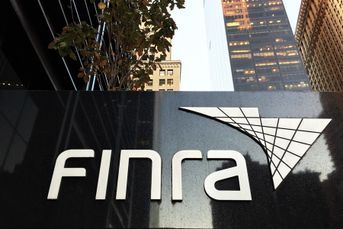Wells Fargo Advisors imposes account fee on more clients

Households now need $500,000 in assets, up from $250,000, for Wells Fargo to waive the fee
Wells Fargo Advisors is expanding the number of households that potentially could be charged an account fee of up to $300 annually.
In the future, households with $500,000 and less in retail brokerage assets could be charged the account fee; currently, Wells Fargo Advisors households can avoid the fee if they have $250,000 or more in retail brokerage assets.
The change was discussed in a meeting with Wells Fargo Advisors branch managers at the end of February, company sources said. It was not clear exactly when the change in assessing the fee will take effect.
It was also not clear exactly how many more clients and households would be subject to the annual fee; the firm allows its 13,512 reps and financial advisers limited discretion in whether or not to charge the fee.
There is a maximum account fee of $300 per household, and most households have multiple accounts, company sources said. On certain account types, fees are waived, including advisory and college savings plans.
“Wells Fargo Advisors charges annual account fees up to a $300 maximum per household,” spokesperson Kim Yurkovich noted in an email. “The fee amounts per account will remain the same. However, the threshold amount for clients who receive an automatic waiver has shifted from $250,000 in household assets under management, to $500,000. This will impact a small number of clients.”
The decision to increase the number of households subject to such a fee comes at a time when Wells Fargo Advisors is trying to shake off the reputational damage it has suffered since 2016, when its parent bank, Wells Fargo & Co., revealed bank employees had secretly created millions of unauthorized accounts in the names of customers without their consent.
The bank was fined $185 million and then-CEO John Stumpf resigned. Myriad bank-related scandals followed.
“Why would Wells Fargo do something like a fee in this cycle when they’re trying to shed the damage to its reputation and also annoy clients and advisers?” asked Danny Sarch, an industry recruiter.
“In an environment where consumers are fee-sensitive, especially with online trade commissions cut to zero, Wells Fargo Advisors is raising client account fees and even layering them,” said one adviser, who asked not to be named. “How does a new fee like this work to attract a younger generation of investors who have not acquired $500,000 outside of company retirement plans?”
Although the firm said that it has seen success recently in recruiting advisers, Wells Fargo Advisors’ head count continued to drop last year, with the firm reporting 13,512 financial advisers at the end of December, a drop of 456 — or 3.3% — over the 12 months of 2019.
While some of those advisers moved to competing firms, others retired and left the industry.
[More: SEC fines Wells Fargo $35 million for unsuitable sales of complex products]
Learn more about reprints and licensing for this article.







